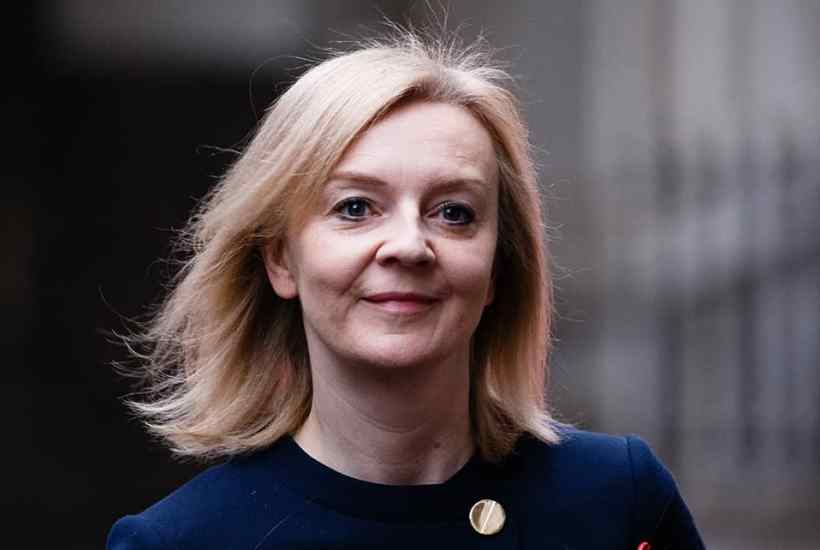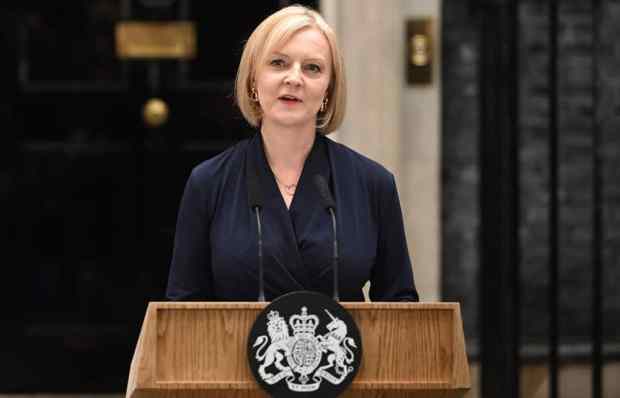Liz Truss has taken the lead in the Tory leadership race with an agenda that seems radical and ambitious, whereas Rishi Sunak appears to offer only elegantly managed decline. Truss promises instant relief from the rising cost of government; Sunak offers to reverse barely half of his own tax rises – and over the course of the rest of the decade. To promise more, he says, is to sell ‘fairytales’. Truss says a better future is possible with enough vision, ideas and, perhaps most importantly, resolve.
Ms Truss came up with a promising idea this week: regional pay boards, so that civil service salaries could be set relative to the local cost of living. For example, the Institute for Fiscal Studies found that public sector workers in the South East are paid 5 per cent less than private sector workers, as might be expected, given the greater job security and pensions. But in Wales and Northern Ireland, public sector workers are paid close to 10 per cent more. The Truss campaign said almost £9 billion could be saved by varying pay nationally, as happens in the rest of the economy – not by cutting anyone’s pay but by reforming future starting salaries.
Over-generous public sector pay, her team argued, is not just bad for the taxpayers, it also undermines recruitment by private sector businesses, starving them of talent and negating what should be one of the advantages of setting up shop in an economically disadvantaged area: lower employment costs. Devolution of pay can empower local areas to attract staff, especially during skills shortages. This is why Barclays, for example, is cutting back in London and hiring in Glasgow: it makes business sense.
Truss’s plan, however, lasted less than a day. It was attacked by what is fast becoming one of the most powerful groups of big-state lobbyists in the country: northern Tory MPs. The Sunak campaign was right behind them, saying this would mean ‘less with Liz’. Did she stand down her critics and power on, as she’s pledged to do throughout her campaign? No, she scrapped the policy within hours, ruling out regional pay boards completely.
In a panic, Truss then announced plans to sustain another unaffordable and indefensible public-spending commitment: the ‘triple lock’, whereby pensions rise with inflation even if wages do not. This sustains the idea that pensioners wish to be bribed, rather than voting for whoever promises the best future for their children and grandchildren. It also suggests that Truss – when under pressure – will do as Boris Johnson did: seek to buy favour with extra state spending, while still promising tax cuts.
This simply does not work. If Truss is unable to hold her nerve, then her tax cut plan isn’t real because it will not last. Borrowing can only take the strain for so long. Sunak is wrong to say that aiming for a low-tax Britain is unfeasible: it will be a tough project, but it’s certainly achievable with enough imagination and thought. But if Truss cannot stand up to her own party critics, what chance does she have against the Labour party, unions and others who would attack her from day one?
The defining policy of David Cameron’s coalition was to bring public spending under control. This was done with the Lib Dems on board, braving taunts of ‘austerity’ and mass union marches in the process. Difficult arguments were made and won. Tax was cut for the low-paid, helping to lure hundreds of thousands from welfare into work. Times change, but the formula of low tax, sound money and regulatory restraint tends to work whenever it is properly tried.
But will Ms Truss’s attempt be a proper one? Will she hold her nerve? Has she even thought it through? Has she worked out when would be the best time to announce spending cuts, and how best to make the argument? If she has not, her agenda will be torn apart fairly quickly. The debacle this week underlines the main criticism of Truss’s campaign: that it all unravels fairly quickly once you begin to ask hard questions. This is why many low-tax Tories worry: if she fails, it risks making a mockery of the idea that there is an alternative to big-state conservatism.
The dishonest ‘have-your-cake-and-eat-it’ economics of the Johnson years have become horribly embedded in the Tory psyche. It has become commonplace for Tory MPs to argue that any trimming of the public sector will crash the economy or fly in the face of the levelling-up agenda. But unless levelling up can be defined as promoting enterprise, rather than state largesse, the Tories will never escape the high-spending agenda that has inevitably led to high tax.
Truss could have embraced Sunak’s ‘less with Liz’ taunt. Yes, she could have said: less tax, less waste, less bureaucracy. But she was not ready for criticism. So instead we got more with Liz: more triple-lock pension spending, more economic distortion. And more cakeism: promises of tax cuts, without any serious discussion about the painful choices ahead if Britain is to make government more affordable.
To attempt reform without a proper plan is to guarantee failure. If Truss wants to win over northern Tory MPs, she needs to be honest during the campaign about the difficult decisions ahead. Cakeism needs to be replaced by candour. Given the scope of the task that awaits, the party – and the country – deserve nothing less.
Got something to add? Join the discussion and comment below.
Get 10 issues for just $10
Subscribe to The Spectator Australia today for the next 10 magazine issues, plus full online access, for just $10.
You might disagree with half of it, but you’ll enjoy reading all of it. Try your first month for free, then just $2 a week for the remainder of your first year.














Comments
Don't miss out
Join the conversation with other Spectator Australia readers. Subscribe to leave a comment.
SUBSCRIBEAlready a subscriber? Log in